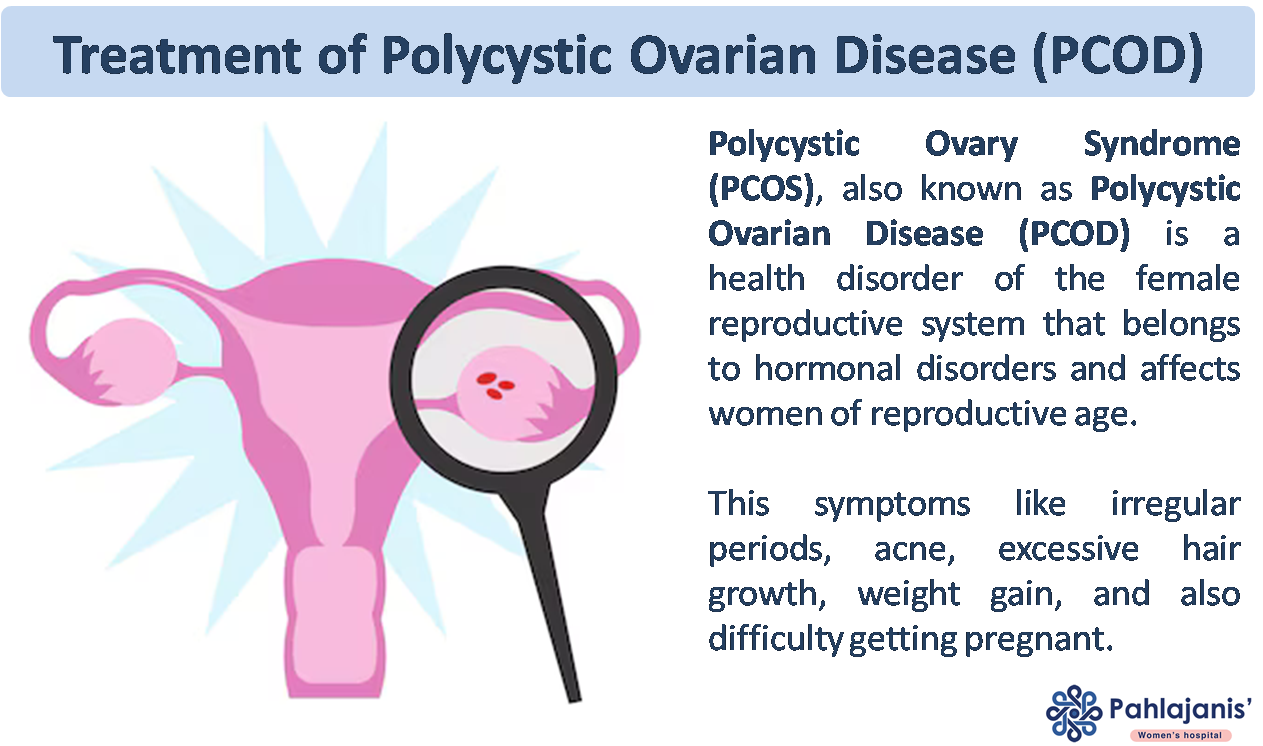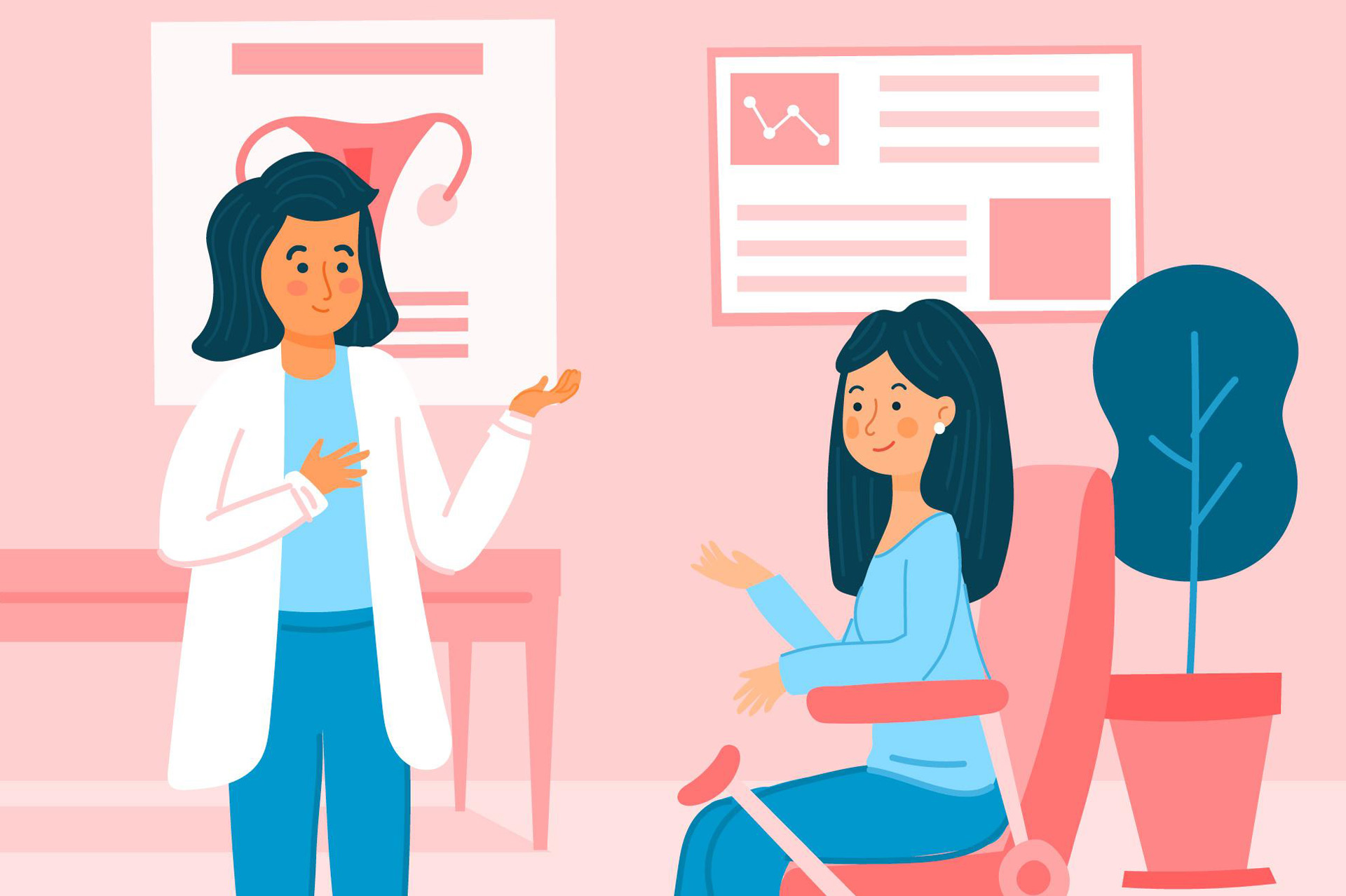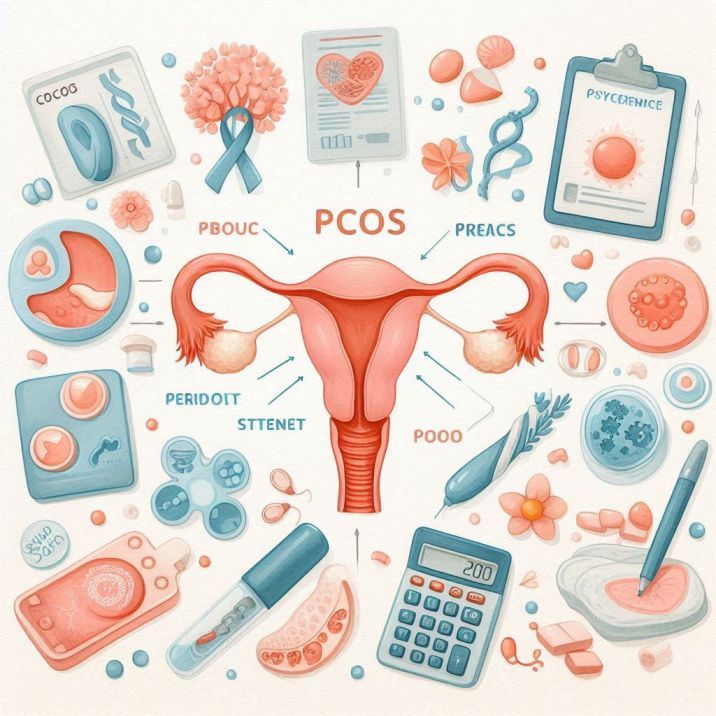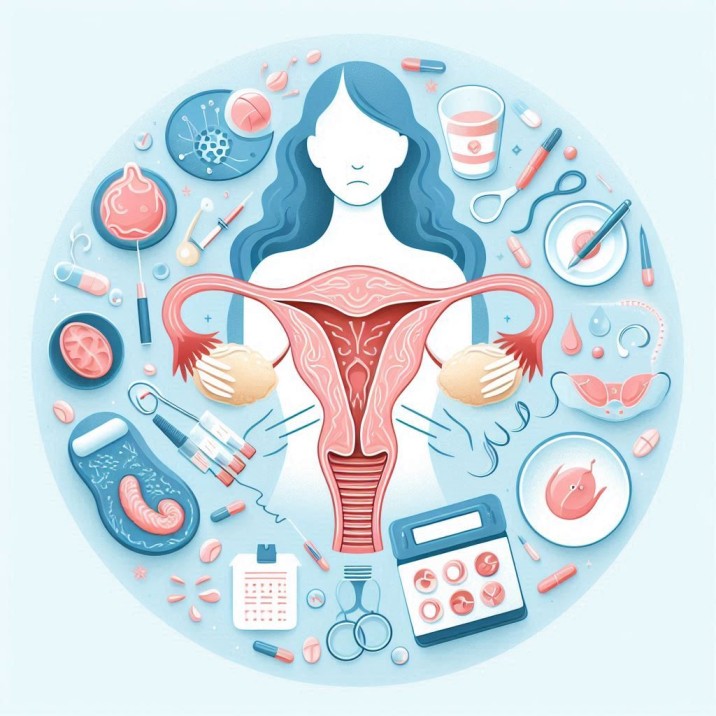Unraveling PCOD: A Guide to Treatment and Healing
PCOD is stands for Polycystic Ovarian Disease, a situation that influences women who’re in their childbearing age. It is a sickness whereby the girl ovaries produce immoderate quantity of male hormones ensuing to abnormal periods pimples hair at the face, belly and chest wherein it should no longer be chest weight advantage issue conceiving.
The precise reason of PCOD is still doubtful however it has been determined out to be added approximately through hyperinsulinemia as well as hyperandrogenism and hypoestrogenism. Another cause can be genetic which results from negative genetics mixed with a terrible weight-reduction plan.

Polycystic Ovarian Disease (PCOD)
Diagnosis of Polycystic Ovarian Disease is a clinical diagnosis, and the diagnosis is made by the doctor based on the symptoms, medical history, and physical examination, and also by laboratory investigations like blood tests, pelvic ultrasound, and hormonal assays. PCOD is best treated using non-pharmacological approaches that seek to suppress its symptoms by making necessary lifestyle adjustments including; good nutrition, exercise (physical activities), and correcting one’s body weight. In some health issues, the doctor may also recommend Polycystic Ovarian Disease problem treatment medicines to control irregular periods and to manage high levels of androgen which are useful for fertility.
Women with PCOD should visit the doctor in a routine and adhere to observing their doctor’s guidelines on how to deal with it to avoid conditions like diabetes, high blood pressure, and endometrial cancer. It is possible for women, who have Polycystic Ovarian Disease to become healthy and rich if they take adequate measures against the diseases and their bodies.
What is PCOD?
PCOS, additionally known as Polycystic Ovarian Disease (PCOD), is a circumstance that affects the female reproductive system and is classed underneath hormonal issues. It normally takes place in girls of childbearing age with such symptoms as abnormal menstruation, zits on the face, excessive hair growth, excessive weight advantage and problems getting pregnant.
How does PCOD affect a female’s life?
It is important to realize how Polycystic Ovarian Disease influences women’s lives due to the fact it is nonetheless enormous affecting severa women throughout the globe.
Menstrual Troubles: Some of the signs and symptoms therefore are frequently neglected durations, irregular durations, heavy bleeding during the intervals and so on. This can impinge on their fertility stages, therefore making it very hard for them to get pregnant.
Infertility: Regarding this PCOD is taken into consideration one of the principal causes of infertility in women. The hormonal imbalance also can lead to failure of ovulation, which makes being pregnant a huge challenge for a lady.
Weight Gain: Poor health news among women with PCOD comes with weight gain, increasing their chances of obesity and abdominal fat accumulation. This may be fatal on the health front and even lead to things like diabetes, heart disease and other numerous illnesses connected to these complications.
Acne and skin problems: In cases where PCOD leads to acne, oily skin, spots or other skin complications, it is because of the high levels of androgens in the body.
Hair growth: Women with PCOD may suffer from the usage of hair on the face; chest, and abdominal regions. This is also because the levels of androgens are higher than usual during adolescence stage level of development.
Mood swings and depression: Thus, PCOD-related hormonal dysregulation may lead to changes in emotions, mental health, and anxiety or depressive disorders.
Increased risk of other health problems: These women are also at a greater risk of contracting type two diabetes, high blood pressure and high cholesterol.
It is critical to remember that PCOD is a chronic illness, so patients need to control the risk factors throughout their lives. Lifestyle changes involved may entail alteration of the diet and physical exercise, while hormonal control may require a drug to balance the hormonal levels in your body and, in some extreme cases, surgery. Specialists suggest two approaches to the problem: it is necessary to cooperate with the doctor and follow her advice, dietary interventions, and lifestyle changes.
Treatment of Polycystic Ovarian Disease
It is imperative to note that although there are no specific medicines that can cure PCOD completely, there are some remedies that address the concerns arising from this disease.
Lifestyle Changes:
Lifestyle changes remain a fundamental and practical approach to managing this condition also known as PCOD. This entails regular exercise, sufficient workouts and an appropriate diet taking in nutritious foods only. The woman’s PCOD condition also brings compulsive insulin resistance that results in increased weight and inclines to weight gain. Regarding the management of PCOD, women must understand that by altering their daily lifestyles, they are capable of solving their problems due to high insulin sensitivity.
Medications:
Other than lifestyle modifications, the following pharmacological therapies are available and can be administered in the management of PCOD. These include:
Metformin – This is an anti-diabetic remedy that is well-known with gynecologists and endocrinologists in treating sufferers with kind 2 diabetes. The meals additionally can be advocated in the treatment of PCOD because it assists inside the stabilizing of insulin tiers in the body. Most customers with PCOD be afflicted by insulin resistance and therefore will have high ranges of insulin circulating in their systems.
This might also bring about the production of androgens (male hormones) extra than necessary, and this can motive such problems as irregularities inside the periodical desk, acne, and excessive hair boom among women. Metformin is used inside the remedy of polycystic ovary syndrome as it reduces insulin resistance in addition to normalizes ovulatory dysfunction resulting in right menstrual cycles and fertility.
Birth Control Pills – Another common treatment for women with PCOD is oral contraceptive pills as they may help regular their periods. They are manufactured using synthetic materials that can inhibit ovulation and control the regularity of the monthly period. Pills also get used to prevent pregnancy also help in the elimination of acne and the removal of unwanted hairs. However, they are not recommended for women with fertility issues and those who are pregnant.
Clomiphene Citrate – Other drugs that act as selective estrogen receptor modulators include clomiphene citrate which is one of the medications used in inducing ovules in women with PCOD who are in the process of conceiving. It is known to work through the promotion of the hormonal stimuli that lead to the release of mature eggs from the ovaries.
Clomiphene citrate an ovulation stimulation pill is normally prescribed and usually taken for five days at the onset of the menstrual cycle. From different reports given by the patient and results obtained from cycle observation, it is evident that ovulation occurs between five to ten days post(clomiphene citrate) treatment. In this particular group of women, clomiphene citrate has been observed to restore fertility.
Letrozole – This is also a drug that can be administered within the treatment of PCOD with the aim of ovulation induction in ladies who need to get pregnant. It is taken in a way that hinders the formation of estrogen which in flip brings about the release of FSH and LH that is critical for ovulation.
Surgery:
Only in some instances where the PCOD symptoms are severe, surgery may be recommended to provide some relief. This can be done using methods like a technique known as ovarian drilling, which entails a surgeon creating small openings in the ovaries to lower androgen production. This proves quite helpful to women suffering from PCOD so far as fertility is concerned.
In conclusion, PCOD is a common endocrine disorder that affects women of reproductive age and is vested with hormone imbalances. Since this is a lifelong disorder, there is no known way that help eradicate the problem, but there are lots of remedies that can assist in managing the disease.
These options include; lifestyle changes, medical treatment, and unlike many other forms of cancer, treatment involving surgery in the few extreme circumstances it is necessary. If you believe you have PCOD, it can be helpful to approach your doctor to find out more concerning the treatment plans that can be given to you. It must however be noted that PCOD if well managed, does not have to hinder the activities of women from having a fulfilling life.




